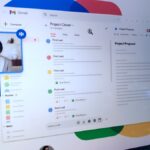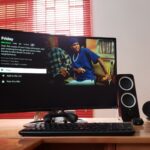Getting into programming as a beginner might seem daunting, especially when you feel you are rather too old and have no solid experience in the tech space. However, you should know that as long as the interest is there and you have the zeal to go on the learning adventure, becoming a coder regardless of your age or previous experience is a possibility.
Whether your interest lies in building websites, creating mobile apps, working in the AI field, or developing desktop applications, learning to code starts with a small step. Apparently, no single person was born with the innate ability to write codes; all programmers went through the learning phase to become professionals.
Why Learn How To Code?
Learning to code offers a lot of benefits, and these go beyond what most people see on the surface. Coding helps improve your analytical problem-solving techniques by sharpening the critical thinking skills required when writing codes. It also helps leverage marketable career opportunities in various IT fields such as web design and development, software engineering, data science, and more. Apart from these, learning to code helps foster creativity by enabling individuals to transform innovative ideas into revolutionary functional applications.
In addition, learning how to code can also:
- Boost Cognitive Abilities: Coding takes quite a lot of attention to detail and a strong set of analytical skills. These mental exercises help improve memory retention, increase focus levels, and help sharpen cognitive abilities considerably.
- Enhance Collaborative Skills: When working with others as part of a bigger team on a project involving coding, programming, or design, one develops better communication skills, which enables effective collaboration within teams and leads towards successful outcomes.
- Unlock Entrepreneurial Opportunities: With an understanding of various programming languages, one could create custom tools for one’s business operations that could streamline operations, and differentiate one from competitors, opening the door for more growth opportunities in the market.
How To Get Started
Coding may seem daunting when starting, especially for those who have never written a single line of code. However, the following steps outline everything you need to get on track toward developing your programming skills:
1. Determine The Right Language For You
There are several programming languages, and before randomly picking one, it should be given some thought. Essentially, your goal is the major determinant that defines which programming or scripting language you need to learn, and this is because each programming language has its use.
For instance, if your interest lies in web design and development, it only makes sense that you start with basic HTML and CSS, and then progress to PHP (for backend development) or JavaScript (for frontend development). Similarly, if you are contemplating going into artificial intelligence, Python might be a great option as it has the capability to handle complex data structures.
Researching and experimenting with different languages is important before committing fully to one; this ensures you’re learning something suitable for short-term and long-term goals. Also, seeking advice from people who are already in the system could add some valuable insights.
2. Find A Reliable Learning Resource
Whatever your interest might be, the World Wide Web is saturated with learning materials to set you on the right path and help you get started. There are free resources on websites like Codecademy.com offering structured courses explicitly designed for beginners. Also, paid platforms like Udemy provide more in-depth lessons, advanced training, and expert guidance from industry professionals.
And for those who would rather talk with another human face-to-face than learn over the internet, there may be local learning centers around you. All it takes is a Google search to reveal locations that might be offering these. This approach could help you connect with like-minded individuals and provide further learning opportunities through group projects or mentorship programs.
Eventually, the most critical factor when selecting a resource is finding one that caters best to your preferred learning style, whether self-paces or otherwise.
3. Create A Study Plan And Stick To It
Getting started with learning coding is a piece of cake, the real work lies in having the discipline to create a study plan and having the heart to stick with it.
For starters, you should determine how much time per week you can afford to study, and you must put other aspects of your life into consideration while creating this study plan. In the beginning, you might want to go easy so as not to be overwhelmed, but keep in mind that the key here is consistency.
If you plan to study for one hour four times in a week, keep to the schedule and endeavour not to deviate. Start with shorter sessions at first, then gradually increase them as your skills develop, allowing for more efficient work periods.
It would help to break down larger goals into smaller milestones as this helps track progress, keeping motivation levels high and ensuring that proper steps are being taken towards achieving objectives in time.
4. Again, Practice Regularly
Like any other skill, consistent practice is essential for becoming adept at coding. To be honest, this is probably the hardest part of the challenge, but through regular programming lessons and a consistent eagerness to become better, you develop better intuition and familiarity with the syntax of your chosen language.
At times it may seem overwhelming to apply all concepts learned; however, as you develop your skills gradually, implementing these ideas into functional programs becomes a lot easier, even enjoyable. Furthermore, this process provides further motivation to achieve more incredible learning milestones that open up new opportunities within various industries. For instance, you might decide to go from being a web developer to a full-stack developer as time goes on.
Conclusion
Learning how to code has become a rather necessary life skill in today’s digital age, opening numerous personal and professional doors. However, with so many online resources, there are no excuses for not getting started.
The steps outlined in this guide are a great starting point for beginners learning how to code. With these tips, you can begin your journey toward becoming an experienced programmer.
It is important to keep in mind that simply getting started is never enough, and that programming requires dedication and patience — it may take quite some time before mastery of even one single language is achieved. However, developing one’s coding skills over time is achievable with the right mindset and effort invested into consistent practice and study sessions.
If you’re interested in learning a new language, why wait? First, pick the language that catches your fancy and look for reliable resources online or sign up for local classes. Then set a schedule with small goals at first, leading to bigger ones as you develop your skills. This can help open doors to internships or jobs where all the knowledge gained so far can be implemented.
It is a long journey, but you must start with a step, and then another.









